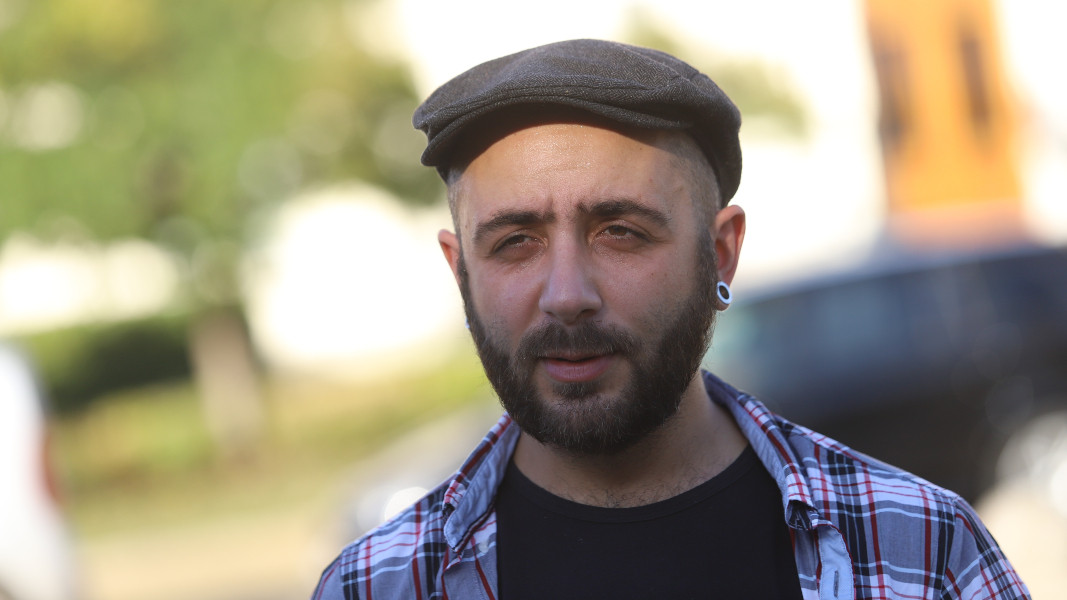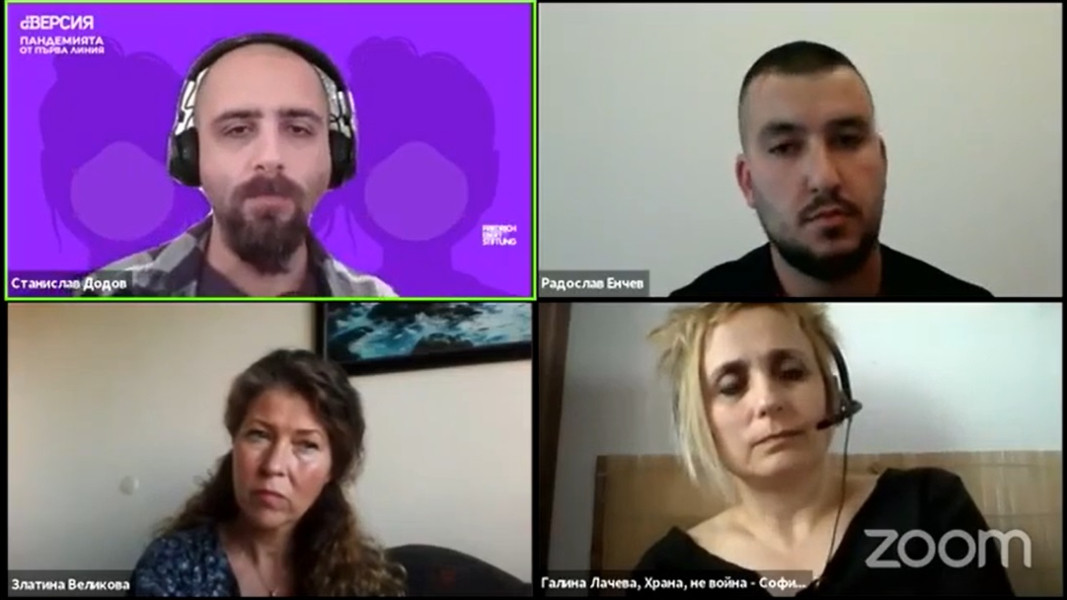What are the personal and professional battles the people on the frontline have had to fight in various social spheres during the pandemic? What are the problems, what is solidarity and does it exist in Bulgaria?
The answers to these questions are given by the team from Diversion magazine and the Bulgarian office of the Friedrich Ebert Foundation in an audio album called “Frontline pandemic”, which features eight episodes with eight different points of view of the times we live in and of what is happening in Bulgaria’s healthcare, education, social care, transport, science, culture. Eight stories in the first person in Covid-19 times.
“Over the course of time, after the start of the pandemic in 2020, the narrative of the people on the “frontline” seemed to fade from public attention and was reduced to the medical staff. But there are so many “frontline” people, working in important public sectors, and we need to talk about them a whole lot more,” says one of the project’s authors Stanislav Dodov. He says that the project shows that to some extent media in this country have been capturing the occurrences as the situation unfolds, often forgetting to show how people who led a difficult life before Covid-19 are doing, and whether they are coping with it. Like the people who live in solitude, the homeless, the multitude of Bulgarians who are sick and elderly, the people who rely on the internet for social security which exists around them, or not.

“What we are seeing is that one of the things the pandemic compounded to an enormous degree, though it is much older than that, is the isolation between us, the rupture in the social fabric in such a way that we no longer seek each other out, we no longer ask one another how we are. The big problem all of the people we talked to in this audio album point to, in different ways, is the sense of abandonment, of loneliness, and on the other hand – of alienation and enmity against these frontline workers. We understand that the narrative about what life is like for a given group of people is not in the public eye. What does it mean to be working on the frontline as things stand? Or to be living on the frontline? Politicians and experts are still the only ones talking about the situation in the media, and there is no way that can trigger the kind of solidarity that matters most. As a matter of fact, “solidarity” is a word that is missing from the vocabulary of politicians,” Stanislav Dodov says.

“It is not possible for a society, which has for decades on end been told, in all kinds of ways, that what matters most is personal development, taking care of your own self etc., to switch over to solidarity mode overnight, or as is the case – over two years. But it has to be said, and repeated over and over again, that people in Bulgaria are not evil per se, or suspicious Balkan characters who hate everything and everyone, or who are stupid – that does a lot of damage. And it is the kind of comment we are hearing from experts. But no, it is just that it is a society that has forgotten why and how to show solidarity.” In the media public “solidarity” seems to be associated solely with vaccines, wearing masks and distancing - by “protecting ourselves to protect others”. But solidarity is so much more than that, Dodov says. “In this sense we have not drawn our conclusions as to what kind of society we want to live in, but one thing we definitely found out from this project is what the people who keep the wheels of society turning do not want – and it is a society of “every man for himself,” Stanislav Dodov says.
Interview by Nikoleta Atanasova, Hristo Botev channel, BNR
Editing by Vessela Krasteva
Photos: @dversiamagazine, BGNESBulgaria is increasingly becoming part of the general trend and dynamics of European citizens changing their location. There are no inhospitable European countries, rather it is a matter of policies and different interests of the..
The 10 main risks are facing the country in the coming decade, shows a national expert study entitled "Ten years, ten risks for Bulgaria" , BTA reports. "Deterioration of the education system" is the top risk cited by the poll. "Further..
You tell me what you have on your table so I can tell you what you are celebrating. This is a joking way of looking at the Bulgarian calendar of holidays from ancient times to the present day. The truth is that holiday meals have always been a very..
Autism spectrum disorders are growing exponentially around the world. Bulgaria is no exception. While more than a decade ago, one in 10,000 children..
You tell me what you have on your table so I can tell you what you are celebrating. This is a joking way of looking at the Bulgarian calendar of holidays..
The 10 main risks are facing the country in the coming decade, shows a national expert study entitled "Ten years, ten risks for Bulgaria" , BTA reports...

+359 2 9336 661
